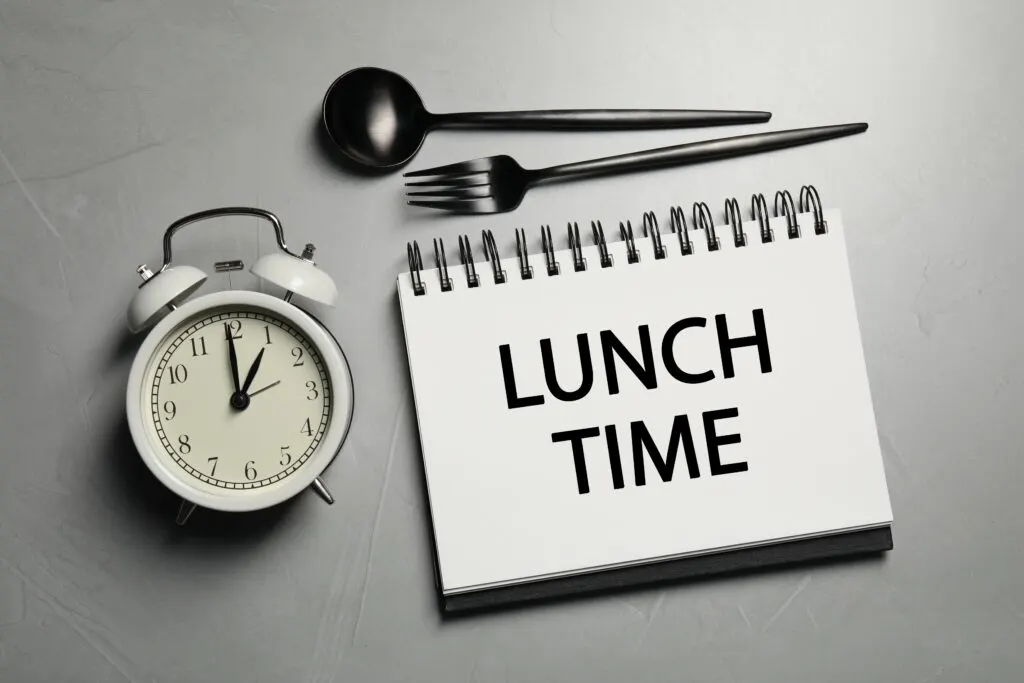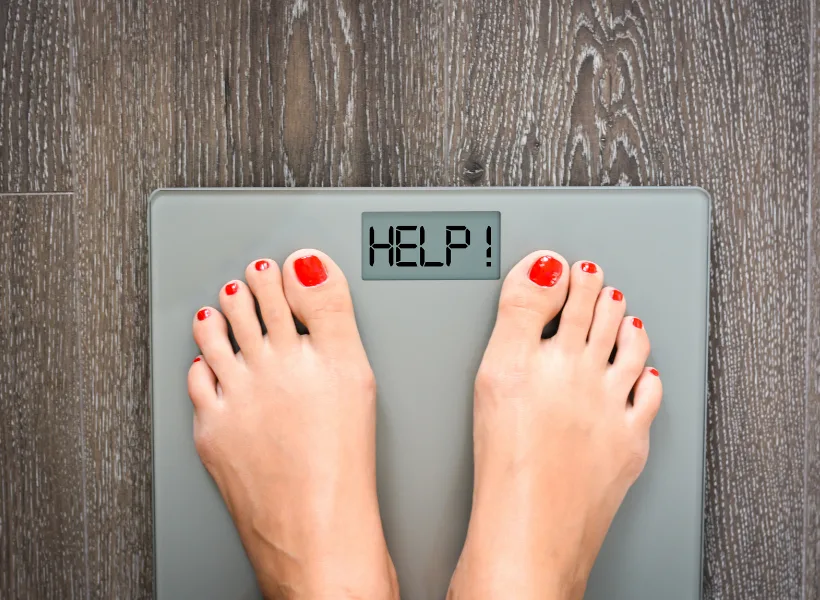Lunch breaks are a crucial part of our workday, providing a much-needed pause to refuel and recharge. However, the debate over their ideal duration remains a hot topic. Should workers have an hour to relax and enjoy a healthy meal, or is a quick 30-minute break sufficient? This question has sparked numerous discussions, both online and offline, highlighting various perspectives and experiences. From productivity concerns to the quest for a healthier lifestyle, the arguments for and against different lunch break lengths are as diverse as the workplaces that implement them.
The Case for One-Hour Lunch Breaks
The debate over the ideal lunch break duration has long been a topic of discussion, with strong arguments for both shorter and longer breaks. One-hour lunch breaks are often championed for their numerous benefits, which extend beyond merely having more time to eat.
Health Benefits
One of the primary arguments for longer lunch breaks is the significant health benefits they offer. Nutrition experts emphasize that having sufficient time to consume a balanced meal is crucial for maintaining energy levels throughout the day. Jen Scheinman, RDN, highlights that a well-rounded lunch, which includes protein, healthy fats, fiber, and complex carbohydrates, helps regulate blood sugar and prevents the mid-afternoon energy slump many people experience).
Furthermore, studies have shown that proper meal breaks can prevent overeating later in the day. When workers skip lunch or have an inadequate meal, they are more likely to indulge in unhealthy snacks or overeat during dinner, which can lead to weight gain and other health issues.
Productivity Boost
In addition to health benefits, longer lunch breaks can enhance productivity. According to research, taking a full hour away from work allows employees to fully unplug and recharge, which can lead to increased focus and efficiency upon returning to work. Regular breaks, including a substantial lunch break, have been found to reduce stress and improve overall work performance.
Moreover, a comprehensive review of workplace productivity revealed that employees who take real lunch breaks are more likely to return to their tasks with renewed energy and a clearer mind, making them more productive in the long run.
Mental Well-being
The psychological benefits of taking a longer lunch break are equally important. Stepping away from the desk for an extended period helps reduce stress and mental fatigue, promoting a better mood and overall mental health. This break from work-related tasks provides a necessary mental reset, which can lead to a more positive attitude and better interactions with colleagues.
The Reality of 30-Minute Lunch Breaks

Many workers find it difficult to accomplish necessary tasks within a 30-minute break. For instance, Daniel’s viral TikTok video highlights a common struggle: rushing to pick up food and having to eat quickly in the car on the way back to work. This situation is not unique, as many workers face similar time constraints that prevent them from fully enjoying their break or eating a proper meal.
Short lunch breaks often lead to unhealthy eating habits. With limited time, employees might opt for fast food or skip meals altogether, which can result in nutritional deficiencies and energy crashes later in the day. According to research, inadequate nutrition during lunch can lead to overeating in the evening and increased stress levels throughout the day.
The mental health implications of short lunch breaks are significant. Without adequate time to relax and recharge, employees may experience increased stress and decreased focus. Studies show that employees who do not take sufficient breaks are more likely to suffer from burnout and reduced productivity. A 30-minute break often doesn’t provide enough time to mentally disconnect from work, leading to a less effective afternoon.
Additionally, the lack of a proper break can contribute to a decline in overall job satisfaction and workplace morale. Employees who feel rushed and stressed are less likely to be engaged and motivated, which can negatively impact their performance and the overall work environment.
Opinions on lunch break durations vary widely among workers. Some, like TikToker @prisy09__, prefer shorter breaks if it means they can leave work earlier. However, many others argue that the disadvantages of a 30-minute break outweigh any potential benefits. The consensus from career coaching platforms suggests that longer breaks are generally more beneficial for maintaining productivity and health.
Health and Productivity Implications of Lunch Break Durations
Health Implications
The duration of lunch breaks significantly affects both physical and mental health. Longer lunch breaks, such as one-hour breaks, provide ample time for employees to consume a balanced meal, which is essential for maintaining energy levels and overall health. Nutrition experts emphasize that meals including protein, healthy fats, fiber, and complex carbohydrates help regulate blood sugar and prevent the afternoon energy slump, which can improve both physical and mental performance throughout the day.
Short lunch breaks, on the other hand, often lead to rushed meals or skipping lunch altogether, resulting in poor dietary choices. This can cause nutritional deficiencies, weight gain, and increased stress levels. Studies have shown that inadequate nutrition during the workday can lead to overeating in the evening, further exacerbating health issues).
Productivity Implications
The connection between lunch break duration and productivity is well-documented. Longer breaks allow employees to fully disconnect from work, which helps reduce stress and mental fatigue. This break from work tasks is crucial for maintaining high levels of focus and efficiency. Research indicates that taking regular, substantial breaks can significantly boost productivity, as employees return to their tasks with renewed energy and clarity.
In contrast, shorter breaks may not provide enough time for employees to relax and recharge, leading to decreased productivity in the afternoon. Employees who do not take adequate breaks are more likely to experience burnout and reduced job satisfaction. This can negatively impact their performance and the overall work environment.
Expert Insights and Studies
Experts like Richard Davidson, PhD, highlight the importance of stepping away from work to reset mentally. He notes that taking time away from constant attention to work-related tasks helps conserve mental resources and enhances the ability to focus upon return. This mental break is vital for maintaining long-term productivity and preventing burnout.
Furthermore, a survey by ezCater revealed that employees who take lunch breaks away from their desks report higher job performance and lower stress levels. The survey found that 81% of hybrid and remote workers, and 77% of in-office workers, agree that taking a proper lunch break improves their job performance.
Tips and Inspirational Stories for Optimizing Lunch Breaks
Practical Tips for Making the Most of Your Lunch Break
- Mindful Eating:
- Focus solely on eating during your lunch break without multitasking. Research shows that concentrating on your meal improves digestion and satisfaction while reducing overeating later in the day. Taking a few moments to appreciate your food and the effort that went into preparing it can be both nourishing and mentally refreshing.
- Stretch and Move:
- Incorporate simple stretching exercises or go for a walk. The 20-20-20 rule (every 20 minutes, take a 20-second break to look at something 20 feet away) can help reduce eye strain and improve circulation. If you have access to a gym or a nearby park, a short workout or a walk in nature can significantly boost your mood and energy levels.
- Social Interaction:
- Use your break to connect with colleagues or friends. Socializing can improve your mood and provide a mental break from work-related stress. Discussing non-work-related topics can help you return to work feeling refreshed and more focused.
- Mindfulness and Relaxation:
- Practice mindfulness during your break. This can be as simple as taking deep breaths, meditating, or reflecting on the positives in your life. Studies suggest that mindfulness can help reduce stress and enhance focus and productivity for the rest of the day.
- Creative Activities:
- Engage in a hobby or a creative activity such as reading, drawing, or listening to music. These activities can stimulate your brain and provide a much-needed mental break from work tasks.
- Healthy Nutrition:
- Plan and prepare a healthy lunch that includes a balance of proteins, healthy fats, fiber, and complex carbohydrates. A nutritious meal can keep your energy levels stable and improve overall well-being and productivity.
Inspirational Stories
1. French Lunch Breaks:
- In France, lunch breaks are a cultural staple, often lasting up to two hours. This extended break allows individuals to enjoy a multi-course meal and socialize, which has been shown to improve both physical health and mental well-being. Emulating this practice, even on a smaller scale, can provide significant benefits.
2. Progressive Relaxation in Call Centers:
- A study found that call-center workers who participated in 20-minute progressive relaxation exercises experienced reduced stress and improved sleep quality compared to those who engaged in small talk during their breaks. This demonstrates the power of structured relaxation techniques in enhancing employee well-being and productivity.
3. Corporate Wellness Initiatives:
- Some companies have implemented innovative wellness programs to encourage employees to take proper breaks. For example, initiatives like the “Take Back the Lunch Break” campaign promote the importance of taking breaks and have been linked to increased employee retention and job satisfaction.
Balanced Lunch Breaks: The Key to Health and Productivity

Lunch breaks play a crucial role in maintaining both physical and mental well-being. From providing the necessary time to enjoy a balanced meal to offering a much-needed mental break, the length of your lunch break can significantly impact your day. While one-hour breaks offer ample benefits, even a shorter break can be optimized with mindful practices and healthy habits.
The debate between shorter and longer lunch breaks highlights diverse perspectives. However, research consistently shows that taking time away from work to eat and relax improves productivity, reduces stress, and enhances overall job satisfaction. By implementing practical tips such as mindful eating, incorporating physical activity, and socializing during breaks, employees can make the most of their lunchtime, leading to a healthier and more productive work environment.
Employers should recognize the importance of proper lunch breaks and encourage their teams to step away from their desks. Whether through wellness initiatives or simply fostering a supportive culture around taking breaks, prioritizing lunch breaks can yield significant long-term benefits for both employees and organizations.



